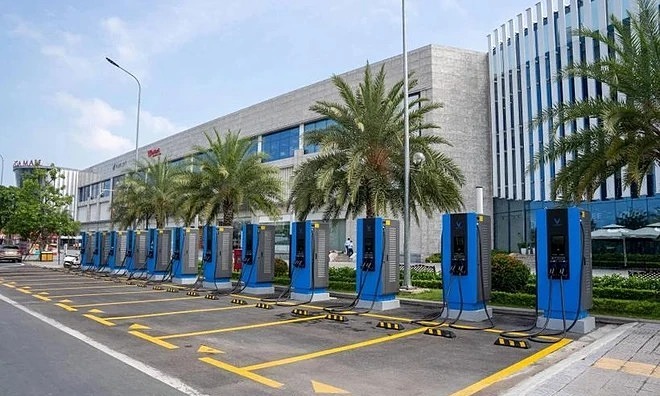Vietnam's Ambitious Electric Vehicle Charging Network
Vietnam is gearing up for a significant transformation in its transportation sector with a projected $14 billion investment in electric vehicle (EV) charging stations by 2050. This initiative aims to reduce greenhouse gas emissions and unlock tremendous opportunities in the EV market.

The shift towards EVs is not just a step towards achieving Vietnam's net-zero goals and environmental protection but also a boost to the national economy. It is expected to cut down on oil import costs and create millions of jobs.
World Bank's Insights
According to a report from the World Bank, the success of EVs, especially among first-time car buyers, hinges on the development of a robust charging station network. By 2030, Vietnam needs $2.2 billion for public charging stations, which will surge to $13.9 billion by 2040 and $32.6 billion by 2050 to meet the growing demand for EVs.
Future Demand for EVs
With the rapid advancement in EV technology and the global push towards green transportation, the demand for EVs is set to skyrocket. Predictions suggest that over 2.8 million EVs will be consumed from 2024 to 2035, with another 3 million in the 2036-2050 period, provided the charging network is developed promptly.
VinFast's Pioneering Role
Major manufacturers like VinFast are leading the charge, not only investing in the infrastructure but also adopting a franchise model that allows businesses and individuals to participate in building the charging network. This approach not only promotes EV usage but also ensures the sustainability of the EV industry in Vietnam.
Public-Private Partnerships
Public-private partnership models are seen as crucial for attracting investment in charging stations. Electricity companies, fuel distributors, and specialized charging service providers are all potential contributors to this scheme.
Government's Role
Insiders emphasize the need for the Vietnamese Government to implement clear and favorable policies that encourage private sector involvement. This could be achieved through financial and non-financial incentives and a well-defined roadmap for EV adoption, complete with stringent technical standards for charging infrastructure.
Efficiency of Subsidies
International studies indicate that subsidies for developing charging infrastructure are five to six times more effective than those for purchasing EVs. This underscores the importance of focusing on building charging stations to accelerate the EV transition and reduce dependence on fossil fuels.
Experts' Views
Assoc. Prof. Dr. Dam Hoang Phuc from Hanoi University of Science and Technology believes that a clear mechanism will attract investors, driving the development of Vietnam's charging station network. Meanwhile, Nguyen Thi Phuong Hien, Deputy Director of the Institute of Transport Strategy and Development, highlights the need for stronger support policies for charging infrastructure development to effectively boost the transition to EVs and green transport.









Comments